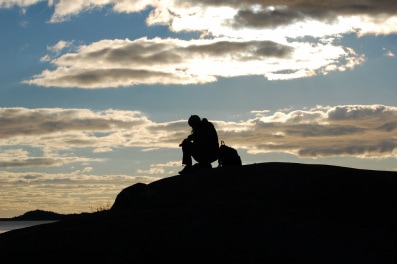 Letters from Lake Joe by Mary E. Hughes
Letters from Lake Joe by Mary E. HughesMy rating: 4 of 5 stars
Having read all three of the ‘Imagining Violet’ books in Mary Hughes’ trilogy, I was looking forward to this novel about the family’s holiday exploits on a Canadian island. The island was called Canonshot originally but was later renamed Burgess Island, due to family connections. Lake Joseph is one of the Muskoka Lakes and in one of Violet’s letters she comments that at seventeen miles long it was some seven miles longer than Windermere, in the English Lake District; which was where she and Frank had spent their honeymoon in 1898. The fictitious letters are written with such amazing authenticity that the reader gets to observe, close up, many of the pleasures and rigours of Violet’s family while spending several weeks there. Violet’s growing brood of children over the first decade had such adventures that you feel part of the family, so well described are their characters.
Meanwhile, Violet’s husband, Frank, was still much involved in the orchestral musical world of Toronto. Eventually he becomes the Director of the Toronto Conservatory Symphony Orchestra. Understandably, escaping to their cottage on Burgess Island, occasionally, provided him with much relief from that very busy society. But at the same time it reminds the reader about the first book in the Violet Trilogy, when she is embarking upon her own musical career. The tragic news in 1911 about Violet’s difficult sixth pregnancy came as quite a shock to me, and I was quite surprised to feel a sense of loss.
The author’s fictionalised letters are based upon her own diligent research about her grandmother, Violet Welsman, in particular but encompass many real characters who were her ancestors and more recent relatives. The group of vignettes in the second half of the book, under the title ‘Muskoka Suite,’ was a collection of the author’s own holiday memories from the middle decades of the 20th century. It revealed a special significance to Mary Hughes and her family about the island that provided a touching relevance to Violet’s letters. This group of stories felt awkwardly inserted and perhaps could have been introduced to readers in a more subtle way. Regardless of this problem, however, I can still thoroughly recommend ‘Letters from Lake Joe’ to anyone who enjoys well written historical fiction about family life.
View all my reviews

 RSS Feed
RSS Feed

